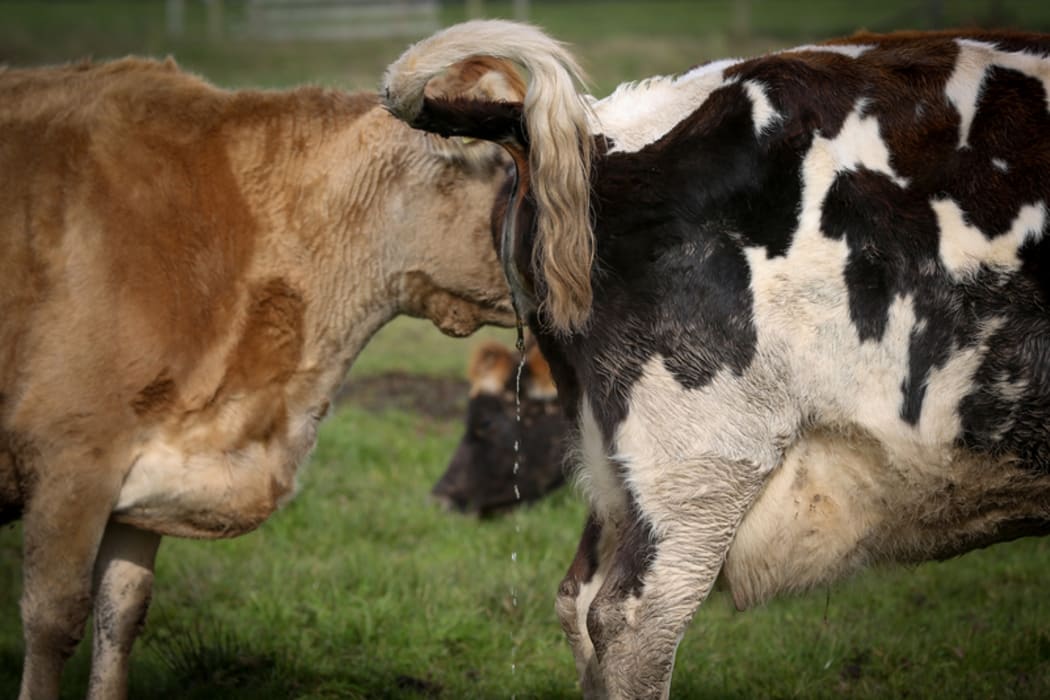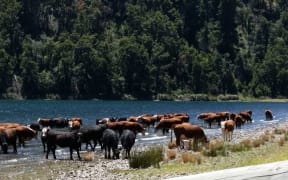Councils are concerned that financial pressures may mean dairy farmers ignore environmental regulations.

Photo: RNZ / Alexander Robertson
Fonterra yesterday lowered its forecast payout for the current season, making it the third dairy company to down grade its estimate.
With the drop in expected payout to $4.15 per kilogram of milk solids, farmers could face a tough financial period - one which is not expected to improve before next year.
It follows news this week that cattle owned by chief justice Sian Elias and her husband had access to lakes in the High Country.
Cows should be kept out of water to prevent degradation of water quality and protect the health of the ecosystem.
Buller District mayor Garry Howard said he did not know of any farmers currently breaching regulations - but he said it was a risk as financial constraints hit.
"We are trying to have people being far more environmentally conscious... farmers have been absolutely awesome at taking that on board.
"But they can only afford to do some much."
Some of the things that were seen as "nice to haves" would be put at risk, Mr Howard said.
Otago Regional Council regulatory committee chair Sam Neill said he did not expect farmers to ignore the rules, but he did think voluntary measures would stop.
"In theory for us it's business as usual, but it's not going to make our job any easier, and it's not going to make it any easier for the dairy farmers."
Mr Neill said the extra strain on farmers could make their relationships with council officials a "little more tense."
But Federated Farmers dairy chair Andrew Hoggard said if councils were concerned they should consider cutting costs.
He said he found it hard to understand how the council could charge so much, and suggested cutting red tape would be a big help.
"To stamp a bit of paper and charge a thousand dollars for it does seem a bit excessive."
Mr Hoggard said some consents did require significant work by the council, but he said it should be about prioritising issues and getting the best value for money.
The Waikato Regional Council has said farmers who have concerns should be proactive and contact the council.
It said council staff were sensitive to the needs of dairy farmers and related agricultural businesses.



